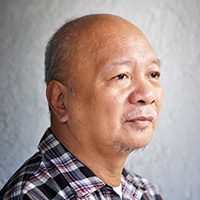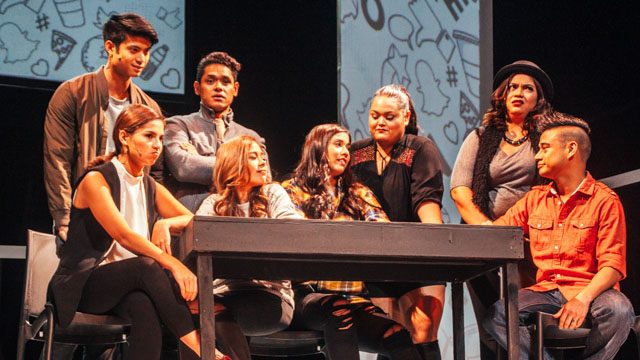SUMMARY
This is AI generated summarization, which may have errors. For context, always refer to the full article.

Filipino millennials, or young people aged 35 and below, would exert enormous influence on the 2016 presidential elections. They have the potential to define its political dynamics, as they make their presence felt as a specific voting bloc in the political run-up and election day itself.
Possessing the numerical superiority, millennials are likely to impose their will in their own novel ways. They would not march on streets, brandish placards and streamers, shout slogans, and cause horrendous traffic jams; they would likely use another avenue, which is social media.
Armed with personal computers, laptops, and other gadgets like tablets, iPads, and smart phones, they are likely to express their will using social networking sites like Facebook, Twitter, Instagram, and several others.
Hence, the march of the millennials in 2016 would be a sharp departure from the previous presidential elections, where, although they had the numerical superiority, young voters could hardly influence the outcome because they did not have the sufficient political muscle and leverage in social media, much unlike today.
It would be foolish to ignore their capacity and capability to influence the next elections. Handlers of the presidential candidates could ignore those organizations belonging to labor, peasant, and religious sectors, but not the millennials, who were born between 1980 and 2000. They have come of age.

Metrics, profile
The Philippines is a young country. By 2016, 60 percent of its projected population of 103 million would be ages 30 and below. Political pundits already project that at least 65 percent of all voters in 2016 would be 40 years or younger. The data make the millennials as the single biggest bloc of voters in the next presidential polls. Incidentally, the median age of Philippine population is 24 years.
Their qualitative side shows that millennials hardly represent a set of numbers. Instead, they typify a way of life with specific culture and value system. They are a living organism in body politic. They represent a culture within a bigger culture, or a subculture, from a sociological standpoint. Their lifestyle and value system continue to evolve.
Yves Gonzalez, social command director and mobile solutions director of McCann Worldgroup Philippines and social command director of McCann Manila, a major Manila-based multinational advertising firm, told participants of the August 19 Volunteerism Summit in Tagaytay City that the series of empirical studies McCann had conducted show the qualitative aspects of the rise of the millennials.
According to him, the value system of young people in the 1980s was essentially oriented on acquisition of material wealth like beautiful houses and condominium units, flashy cars, and fat bank accounts, but this changed in the 1990s to give emphasis on experience. Their value system was dominated by experiences like travels and lifestyle changes, as they talked about their rise in corporate ladder, their personal struggles and triumphs, their serendipities, and the like.
Lately, the same empirical studies showed another shift to stress a social-oriented hierarchy of values. Social connection is the primary value. Their identities are defined to a large extent by social media.
According to Gonzalez, studies showed that the millennials’ social acceptability is defined largely by social media; its indicator is the number of friendships they make in social networking sites. While these friendships via social media could be considered virtual, they could be real from their standpoint. Social media has indeed become a way of life for them.
Hence, their identities are defined by the posts they make, and the number of likes they generate. Hence, their social lives revolve in social media, as empirical studies showed they tend to account by posting almost everything that happens in their lives. Doing detailed reporting has gained acceptance among millennials. It has become the social norm.
Multiple friendship
In the past, friendship is largely unidimensional, according to the studies. Friendship refers to those relationships a young person makes in school and workplace. But the studies revealed a vast expansion of millennials’ relationships to include varying levels of human society.
Using social media, millennials have multitiered friendships, or simply multiple friends with childhood playmates, current and former neighbors, elementary, high school, and college batchmates, co-alumni, fellow workers and professionals, former colleagues, father’s and mothers’ friends, and plain friends.
Surprisingly, studies showed that the older generation approves of the multiple friendships; their elders hardly stop the young people from making friends with people from various walks of life and older generations, including their own circles of friends. They encourage those friendships, studies said.
Millennials feel empowered as they make friends with various people, including celebrities and other famous people. They get their high when they answer their posts and tweets, according to the studies.
Value system
The value system changes, too. For millennials, authenticity is top in their hierarchy of values, followed closely by transparency, love of parents, and love of country.
They want everyone they deal with to be real and genuine. They expect and want their friends to express themselves in the most honest way and without pretensions, empirical studies showed.
Hence, the expression “magpakatotoo ka” finds relevance among millennials. This is the first requirement in every friendship a millennial makes.
But millennials also treasure transparency as they want every friend to make public everything about them. They do not want to hide details.
Political relevance
The millennials’ numerical superiority and value system will find expression in the 2016 presidential elections. Their choice of the next president is likely to be determined by their prevailing dominant values.
Hence, political handlers are likely to position their candidates along the prevailing values of authenticity and transparency. Their political campaign would speak volumes about what the handlers conceive as the authentic and transparent aspects of their principals. Their political messages are expected to dwell primarily on these values.
How the millennials would respond to their presidential candidates’ messages is worthwhile to explore. Whether they would uphold those values remains to be seen though.
Senator Ferdinand “Bongbong” Marcos Jr. has acknowledged the millennials’ growing political clout, as he has acknowledged the fact that nearly 80 percent of the voting population in 2016 are those aged 40 and below, and, ergo, have faint or no memory of the martial law regime.
His camp has repositioned his potential presidential run on a major revision of history, where his father, dictator Ferdinand Marcos, is presented not as a villain in history, but “the greatest president.”
Although Vice President Jejomar Binay was the first to declare his presidential intentions, his camp has hardly repositioned him to win the votes of the millennials. Instead, his camp has given premium on the voting power of the “unthinking masses,” or those who have no access to the Internet and social media. He has hardly taken initiatives on the fundamental values of transparency and authenticity.
If their posts, threads, and tweets in major social networking sites would be the yardstick, many millennials have taken a negative view of Binay’s chances mainly because of his continued refusal to air his side in the appropriate forum, which is the Senate. Moreover, he is perceived as unable to provide transparency to the numerous allegations of corruption and impropriety.
Meanwhile, political handlers of Interior and Local Governments Manuel Roxas II have quietly repositioned him as the millennials’ candidate by identifying him as exactly Binay’s opposite.
Moreover, the political campaign that identifies him as the initiator of the multi-billion dollar business processing outsourcing (BPO) is a major step to associate him with the millennials, many of whom are employed in the BPO firms.
How the other presidential candidates would reposition themselves for the millennials’ vote is not exactly clear. They have not taken major initiatives either to court or win them outright. – Rappler.com
Add a comment
How does this make you feel?
There are no comments yet. Add your comment to start the conversation.